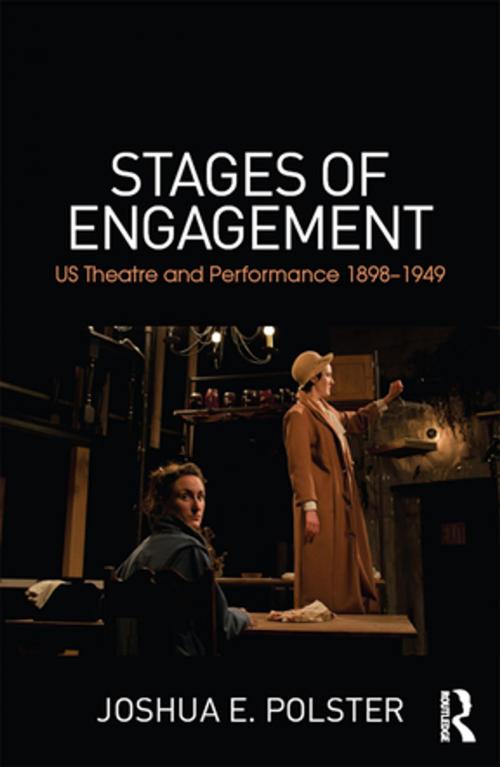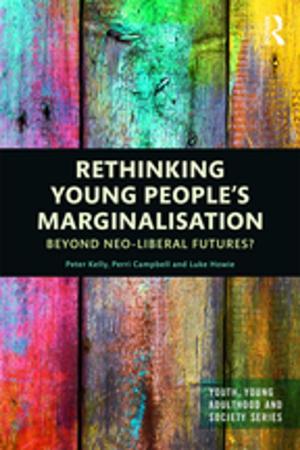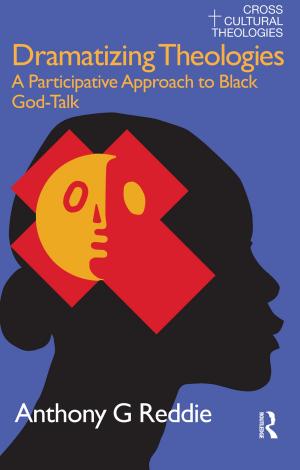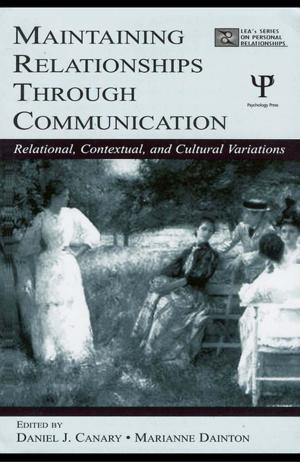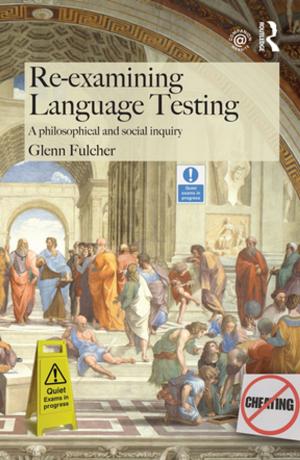Stages of Engagement
U.S. Theatre and Performance 1898-1949
Nonfiction, History, Americas, North America, United States, 20th Century| Author: | Joshua Polster | ISBN: | 9781317358725 |
| Publisher: | Taylor and Francis | Publication: | October 16, 2015 |
| Imprint: | Routledge | Language: | English |
| Author: | Joshua Polster |
| ISBN: | 9781317358725 |
| Publisher: | Taylor and Francis |
| Publication: | October 16, 2015 |
| Imprint: | Routledge |
| Language: | English |
Stages of Engagement is a compelling and wonderfully varied account of the relationship between theatre in the United States and the social, cultural, and political forces that shaped it during one of the most formative periods in the nation’s history.
Joshua E. Polster applies key thematic perspectives – Colonialism, Religion, Race and Ethnicity, Gender and Sexuality, Economic Systems, and Systems of Government – to seminal moments in US history. In doing so he explores the ways in which the theatre has responded to these turning points, through the work of some of its principal dramatists, directors, designers, and theatre companies.
His approach tackles questions such as:
• How did the plays of this period reflect the nation’s concerns and anxieties?
• How did theatre, culture, and politics interconnect as the United States took to the world stage?
• Which critical viewpoints are most useful to us when examining these cultural phenomena?
• How did performances and productions attempt to influence their audiences' social and civic engagement?
On its own, or in tandem with its companion volume The Routledge Anthology of US Drama 1898–1949, this is the ideal text for any course in US Theatre. By examining each cultural moment from a range of critical perspectives and drawing upon a diverse range of sources, it is designed specifically for today’s interdisciplinary and multicultural curriculum.
Stages of Engagement is a compelling and wonderfully varied account of the relationship between theatre in the United States and the social, cultural, and political forces that shaped it during one of the most formative periods in the nation’s history.
Joshua E. Polster applies key thematic perspectives – Colonialism, Religion, Race and Ethnicity, Gender and Sexuality, Economic Systems, and Systems of Government – to seminal moments in US history. In doing so he explores the ways in which the theatre has responded to these turning points, through the work of some of its principal dramatists, directors, designers, and theatre companies.
His approach tackles questions such as:
• How did the plays of this period reflect the nation’s concerns and anxieties?
• How did theatre, culture, and politics interconnect as the United States took to the world stage?
• Which critical viewpoints are most useful to us when examining these cultural phenomena?
• How did performances and productions attempt to influence their audiences' social and civic engagement?
On its own, or in tandem with its companion volume The Routledge Anthology of US Drama 1898–1949, this is the ideal text for any course in US Theatre. By examining each cultural moment from a range of critical perspectives and drawing upon a diverse range of sources, it is designed specifically for today’s interdisciplinary and multicultural curriculum.
